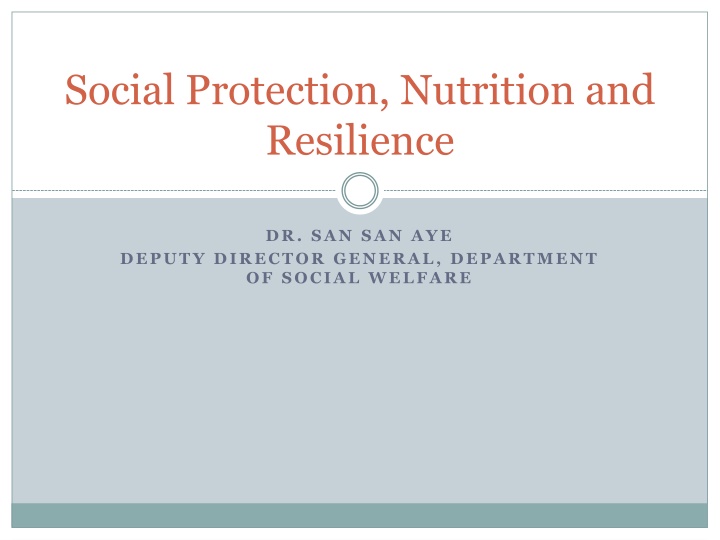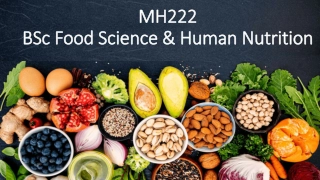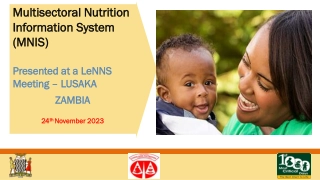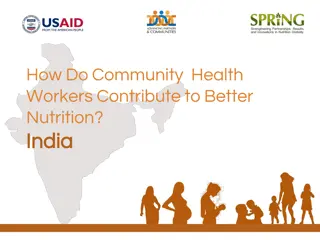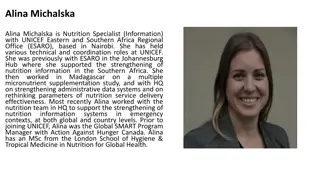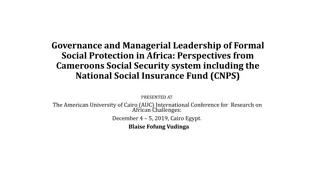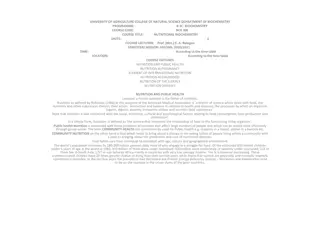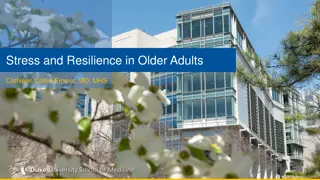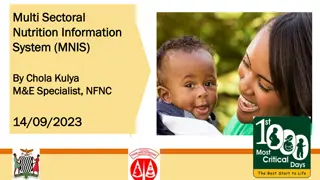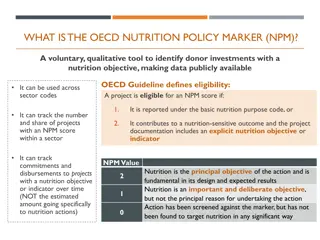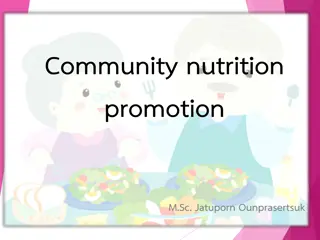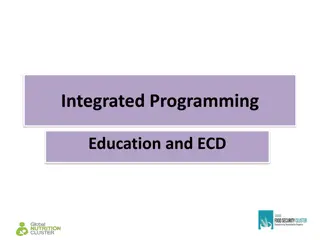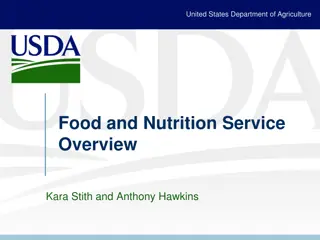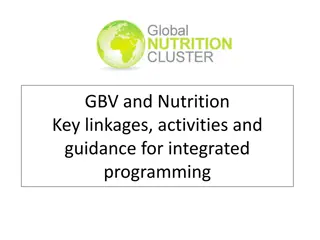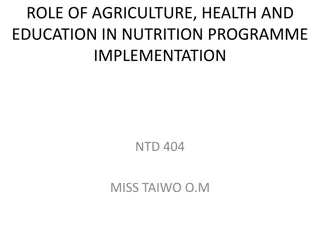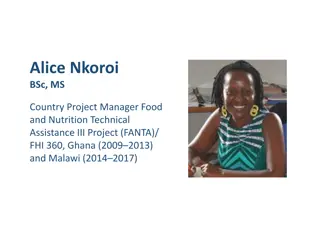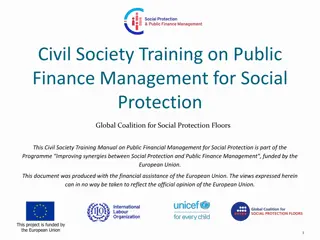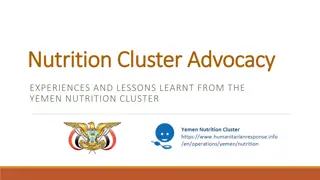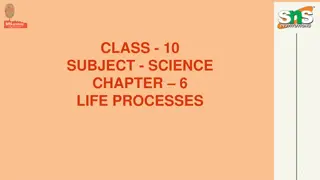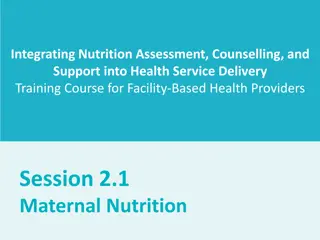Social Protection, Nutrition, Resilience - Building Future Resilience
Social protection and resilience are crucial for individuals, households, and communities to overcome challenges and build a sustainable future. Improving nutrition and food security leads to enhanced health outcomes and economic well-being. Resilience in households, especially those with young children, is essential for long-term stability. Gender and disability also play a significant role in determining resilience levels. By addressing vulnerabilities and promoting social protection measures, we can enhance resilience and reduce the impact of adverse events.
Download Presentation

Please find below an Image/Link to download the presentation.
The content on the website is provided AS IS for your information and personal use only. It may not be sold, licensed, or shared on other websites without obtaining consent from the author.If you encounter any issues during the download, it is possible that the publisher has removed the file from their server.
You are allowed to download the files provided on this website for personal or commercial use, subject to the condition that they are used lawfully. All files are the property of their respective owners.
The content on the website is provided AS IS for your information and personal use only. It may not be sold, licensed, or shared on other websites without obtaining consent from the author.
E N D
Presentation Transcript
Social Protection, Nutrition and Resilience DR. SAN SAN AYE DEPUTY DIRECTOR GENERAL, DEPARTMENT OF SOCIAL WELFARE
Resilience Resilience of individuals: physical, emotional, economic Resilience of households: coping strategy, food security, livelihoods Resilience of communities: co-operation, natural resource management
Building future resilience Improved nutrition and food security during first 1,000 days results in: Improved health in early childhood Improved academic performance at school age Higher wages in adulthood
Food security in households with children % reporting significant shortage No child 2% 1-2 children 2% 1-2 young children (<5) 3% > 2 young children 5%
Resilience in Households with children Consumption loan amount as % of annual income Loan for consumption No young child 14.7% 60.0% Young child 18.5% 68.0% >2 young children 16% 81% ALL 15.6% 62.0%
Resilience in Households with young children Low Resilience Normal or higher resilience Median annual income 1,800,000 2,000,000 % classified as poor 26% 19% % of income from casual labour % income from non- agricultural source 22% 15% 64% 56%
Resilience and Gender, Disability Low Resilience Food insecurity Male Headed 18.8% 2% Female Headed 23% 3% No PwD 19% 2% One or more PwD 22.3% 4%
Social Protection and Resilience Social protection increases resilience by reducing the need for erosive coping (like high-interest loans for consumption) Social protection increases resilience by reducing food insecurity, improving long-term health and development Social protection increases resilience by addressing vulnerabilities
Aspects of social protection Formal Social Protection: cash transfers, assistance, social security Non-formal social protection: provided by communities
Social Protection for all, and by all Social protection should be an integral part of wider rural and urban development Not just the responsibility of one Ministry Social protection can be a key component to enhance building resilience in other areas such as rural development, urban planning and Disaster Risk Reduction
MCCT-Chin: A Tool for Promoting Resilience Nutrition focused SP for pregnant mothers and children under 2 in Chin state Objective: Improved nutritional practices and outcomes for mothers and children First government led state-level Cash Transfer program First two years with donor funded and then government hand over
MCCT-Chin: A Tool for Promoting Resilience -2 Promote resilience of life through the first 1000 days of life (with immediate impact on accessing health care, medium term impact on nutrition, and long term impact on promoting resilience of life) Two program components (Cash transfer and Nutritional Behavior Change Communication) 15000 MMK per month per mother bi-monthly basis
Conclusion Resilience: to cope with change. Changes are adverse, unexpected, and multi- dimensional nowadays. Resilience should be built since the early part of life: first thousand days.
